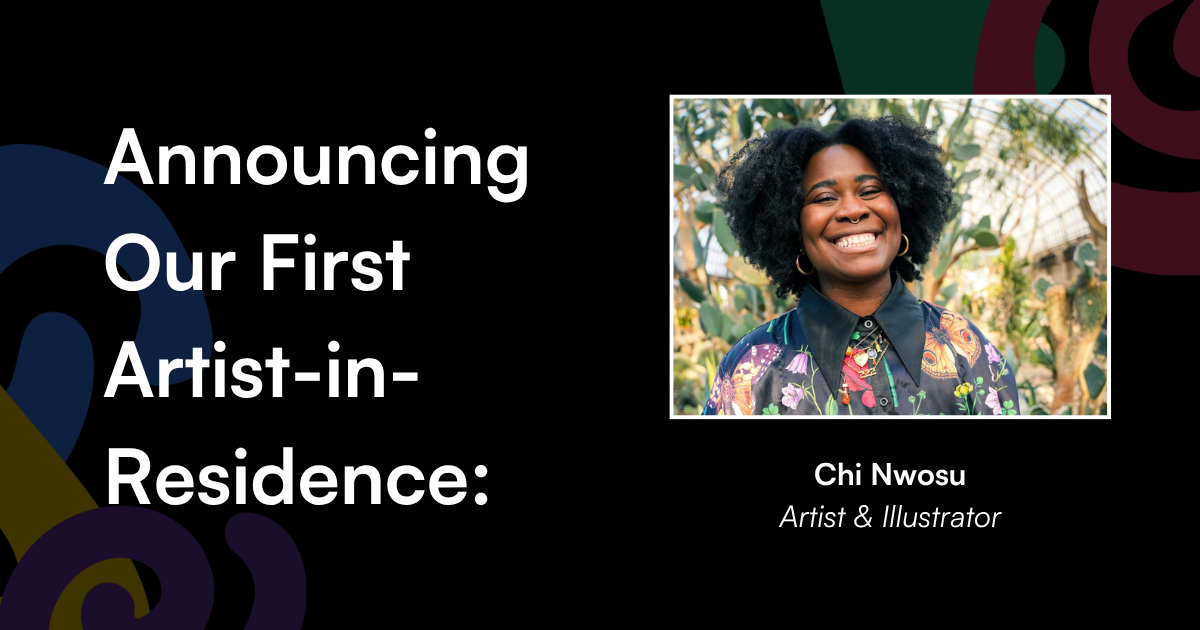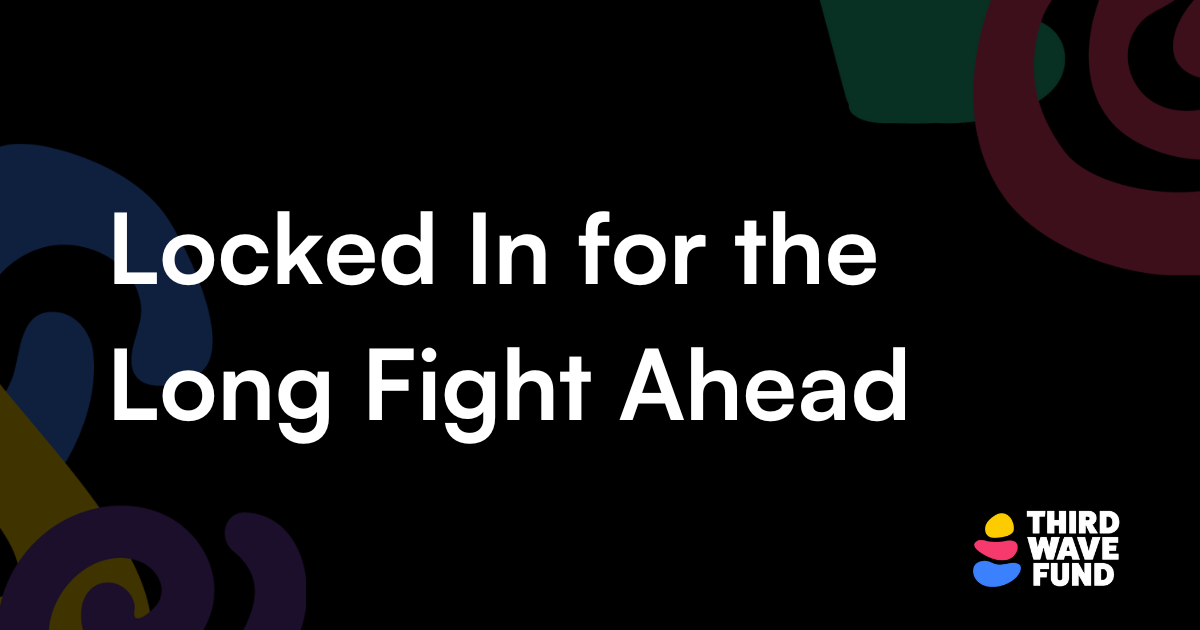Grantee Spotlight: Daroneshia Duncan-Boyd and TAKE Resource Center
Black trans safety and liberation requires community power, self-determination, and ongoing support through skills development, capacity-building, and funding—both in movement moments and for the long haul. Today we're sharing a window into what can grow when we resource the frontlines beyond movement moments.
Enter Ms. Daroneshia Duncan-Boyd, an unapologetically Black trans woman and Executive Director of TAKE (Transgender Advocates Knowledgeable Empowering) Resource Center, a trans people of color-led organization headquartered in Birmingham, Alabama.
After a fabulous introduction from local C.J. Bell (Sex Worker Giving Circle (SWGC) Program Associate, former SWGC Fellow & Advisor, and TWF Advisory Council member), Daroneshia breaks down TAKE’s work and Third Wave’s impact. You can watch their conversation here (closed captioning available) or by clicking the video below. You can also read a shortened version of their conversation below the video.
C.J. Bell:
Hey everybody, my name is C.J. Bell. My pronouns are they/them. I am the Sex Worker Giving Circle Program Associate, former Fellow and former advisor for Sex Worker Giving Circle. I'm also a former member of the STAR's Advisory Board. And I am joined here today by one of my favorite comrades from the city of Birmingham, the Daroneshia Duncan-Boyd, the Executive Director of TAKE Birmingham. Her work at TAKE is a reflection of her commitment to transform the intent behind the hashtag #NotOneMore, and hashtag #SayHerName into a set of impactful strategies, programs, and resources that will honor the lives of those that have been taken too soon and create pathway for and by with those that are still here.
Daroneshia opened the doors to the physical location for TAKE in 2017. Since then, she has built a powerful leadership team of trans leaders. Together, they have built one of the most impactful trans-led organizations in the South. TAKE provides an array of services, including but not limited to programs that support trans and non-binary people to navigate and manage unemployment, incarceration and community reentry, homelessness, HIV and AIDS, addiction, mental health issues and violence. Resources and services include a clothing boutique, a peer support and access to food security. Much of Ms. Duncan-Boyd's work centers trans women of color, however, her commitment, vision, and heart are firmly grounded and connected to the broader work of racial, gender, and economic and LGBTQIA+ justice. Ms. Duncan Boyd's leadership has been recognized and featured on HBO's Wyatt Cenac's Problem Areas and State of Pride. She has been honored as an Alabama champion of Pride and she's also been featured in the Advocate Magazine and recognized as one of the top seven inspiring LGBTQ leaders in Alabama.
Daroneshia Duncan-Boyd:
Thank you so much for that beautiful introduction C.J., it means a lot. Of course, knowing what Birmingham gives, being able to share space with me is just a monumental moment to be back here in this space with you in this capacity of work that you're doing. The impact that TAKE have been able to do here in not only Birmingham but in Alabama to create a presence and a voice for trans folks, especially Black trans folks, giving trans community a outlet where we are able to come together and just share our joys, our sorrows, our crisis, just all those things happen within the safe space. Being able to serve hot meals daily, have the T-Boutique here, just all around holistic program that makes sure that our community is moving towards a path of liberation and joy. So TAKE have made a tremendous impact in many folks' lives and we noticed that with the work that we do, we focus and we primarily support Black trans individuals.
C.J. Bell:
TAKE is a multiple program awardee of Third Wave, meaning y'all have got grants from Third Wave from different programs and I just wanted to speak to what has that been like? What has that relationship been like? What has been able to be created out of that resource?
Daroneshia Duncan-Boyd:
When we think about being able to be on multiple dockets within Third Wave's fund, it means a lot because it shows the level of intentionality around Third Wave is not only investing in the leadership of my personal growth, but also the leadership within the organization development and making sure that they've given us the power that we need and also the financial support to continue to build base, expand services and programs and get the things done that needs to be done within TAKE's infrastructure.
C.J. Bell:
And speaking to infrastructure and the growth of TAKE, y'all fiscally sponsor organizations now?
Daroneshia Duncan-Boyd:
Yes. We actually fiscally sponsor organizations, I think it's at least six organizations that we currently fiscally sponsor. Most of those organizations are Black trans-led. Most of those organizations are in the South. So we have to continue to pour back into communities because when TAKE first originally was created, we needed a fiscal sponsor to give us some support and give us the actual infrastructure that we needed to operate daily and that the overhead will cost so much when you first beginning to build base and create this level of organization. But now we're able to operate in a capacity to offer other Black trans-led organizations fiscal sponsorship and that's great. That's a level of achievement and it's also rewarding to my soul to know that we're able to do this work not only within TAKE but with other organizations and helping them figure it out. And so it makes the work a little easier because we know that we are not only doing the work in Alabama, but we're working with other organizations in different states making sure that the work is getting done.
C.J. Bell:
Was there anything else that you just wanted to share about?
Daroneshia Duncan-Boyd:
Okay. Yeah, just thinking about when you building out these funders relationships, what does that really look like? And the two things that stands out to me most is being intentional and also invested. What does that investment look like? Is it multi-year funding or is it multi-year funding pools, pulling from different places or even much recommending the organizations that you're working with to other funders that give you money?
And then to also just be intentional. Like if I give said organization money, how do we actually build a relationship? Growing that relationship and letting that person know that's doing this work, they're not alone. Your growing pains, your success, your failures, they're all a part of us as the funders that are supporting y'all. So I think that those are the two things that we need to uplift. And when we build these funders relationships, what does it really look like? Is it intentional and is the funder actually invested? Are they just giving us enough to continue to starve us?
So thank you so much for this opportunity just to share some of my wisdom, my areas of expertise, and hopefully this resonate with somebody. And most of all, if you are out there and you're funding the work of Third Wave, continue to plant those seeds in Third Wave because Third Wave is amazing and they have been along this growth journey with TAKE for at least the past seven years that I know of. So continue to support Third Wave and its work. And most of all, you can follow TAKE at @TAKE_ResourceCenter on Facebook, on Twitter, on Instagram, and hopefully you don't mind donating directly to us as well.
This grantee spotlight video was graciously sponsored by: Christopher Street Financial, Emergent Fund, Soapbox, HEART, and Aubin Pictures.


